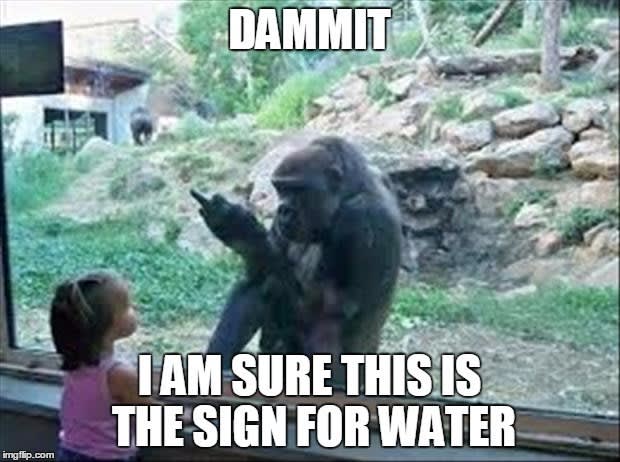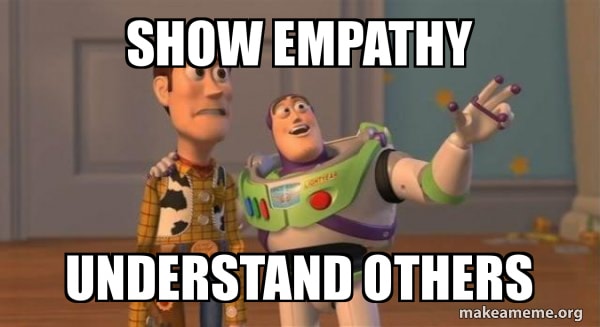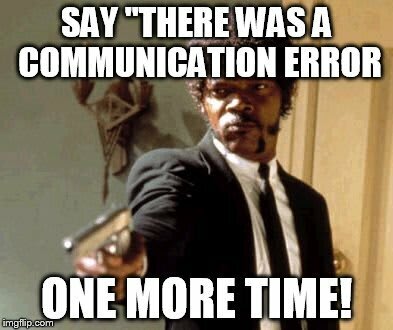Poor choice of technology, Friday afternoon releases, infrastructure problems, package-dependent conflicts, legacy code... or as I call them – developers’ nightmares. There are many problems with the projects we’re working on. Surprisingly, the most common, is at the same time, the most obvious. Even Robert Plant from Led Zeppelin sang about it in one of his songs... yeah, I am referring to ‘Communication Breakdown’ ;) – an issue that is relevant even in the 21st century.
Open-secret
I have worked as a dev for over 6 years now and believe me, I have come across communication issues too many times, more than I would have liked. Let me share a few stories and some thoughts with you, it may help you look at it from a different perspective.
Ok, time for some ‘revealing’ insight – in my opinion, the source of most communication problems is the difference in people's characters. People are different and being on the same wavelength isn’t common. What one person perceives as a clear message, is often ambiguous and confusing to someone else.
Many times, when I was sure that I gave a detailed description of the problem, I later realized that my message was too complicated... and often too long! Similarly, I remember situations when I was given brief and vague information, resulting in a lot of time spent trying to understand someone else's riddle. After reading the text a few times, I still wasn’t sure if I understood all the information.
Keep it real clear!
Finding a balance and a happy medium is key. It’s important to avoid unnecessary details that are clouding your message. You should remember that simple requests like “set an environment” or “make a nice contact form” could not be enough. It could be fine when you have known and worked with someone for a long time and you have built a mutual understanding, but when you are texting someone you have known only for a few weeks, or with an inexperienced intern, the end result of your simple request, may be something quite unexpected...
I have noticed that dividing your message into sections and subsections can work miracles. It’s good to split your message with titles and headings, or with formatting features. Text editing tools are very useful for making the message more digestible to the reader.
Pro tip – read your message before you send it. I bet that in 9 out of 10 cases you will correct some typos or change some sentences. If you follow these rules you will avoid some serious f*ups.
Story time!
Let me tell you a story my friend shared with me. It is about communication issues leading to a monumental f*up. He worked for a small company with just one requirement – to use Git. Some time ago two juniors (but with some experience) were given a task to code a simple web page. Let’s be honest – it’s a week of work for an intermediate dev. And how did our heroes handle this project? Well, they met, divided the tasks, put the headphones on, and focused on themselves for five days. On Friday they reviewed their progress. It turned out they failed to implement a few critical elements. They both thought that the other person would be handling those specific things. It ended with them working all weekend to finish the project, only just before Monday’s deadline, with the whole office making fun of them. Both did not work there for too much longer.
Commas, in wrong, locations ;) and talking to people
What may appear to be foolish, but is not, is not paying attention to punctuation. Punctuation is very important! It’s crucial for text messaging. I mean - you don’t have to become the Stephen King of the company’s Slack, but it’s worth thinking about how many ways your message could be interpreted. For example, the sentence “install Visual Studio Code npm Angular Git Docker We will configure later” is not very clear. By using appropriate punctuation you will make sentences readable, as per the author’s intention.
It’s the same with spoken language. Ambiguity can lead to miscommunication, but more than that, it has the potential to affect working relationships if done without due care. In face-to-face meetings, it is often a necessity to adapt to others. Of course, you could scold an intern for not making a backup, but you should ask yourself a question, what would you achieve with that? You will most certainly ruin your relationship and jeopardize the chances for successful future cooperation.
Time for my second piece of clichéd advice - treat others the same way you would like to be treated. As I mentioned earlier, people are different, and it’s worth keeping that in mind. Some enjoy it when Jean Michel Jarre tickles their eardrums with his music. Others love the gentle sounds of Napalm Death. Some get annoyed with people invading their personal space, while others are driven mad by people who avoid them. It’s worth being aware of others’ differences and developing empathy within ourselves. I’m not talking about pretending to be someone you’re not. What I mean is to respect and understand others to make sure they feel comfortable around you. And that is the key to successful communication.
A few words at the end from... an introvert
This text is from the perspective of a guy who has problems expressing his thoughts. But the things I highlighted above are helping me improve my communication. I feel that being aware of your weak points is the first step to improvement. The next step is learning from your mistakes and then practicing to avoid repeating them.
So don’t give up, even after f*ups. You’ll get better with every message and meeting!






Top comments (0)